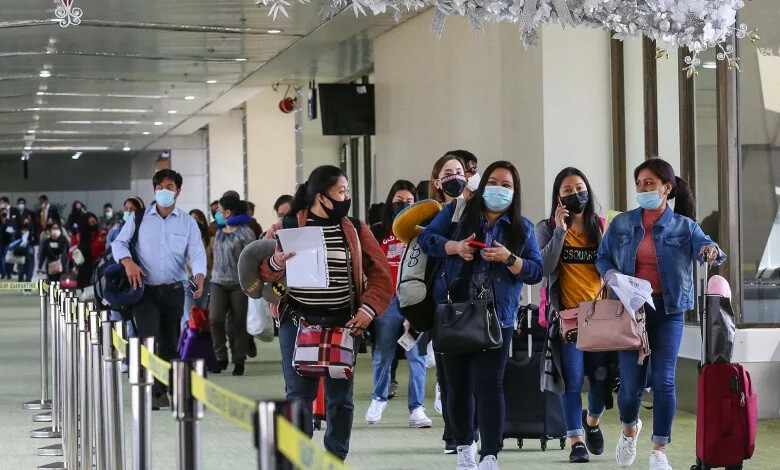
The Philippines has endured a tumultuous history. From political upheavals in childhood memories, the "golden bed" scandal of President Elpidio Quirino in the 1950s, to the Hukbalahap rebellion that fought against the Japanese during World War II and then turned to communism to defy the government, the Philippines has faced incessant internal conflicts and external threats. While the Philippines played its part as a member of the international community by dispatching the Philippine Expeditionary Force to Korea (PEFTOK) during the Korean War, the tragic death of President Ramon Magsaysay even instilled anxiety in the youth. However, amidst this chaos, the steadfast belief of "the Philippines will exist no matter what," uttered by a father, became a symbolic phrase representing the indomitable will of a nation. This statement offers a positive outlook, suggesting that the Philippines will move towards a brighter future despite all the difficulties it faces.
President Marcos Jr.'s Leadership and the Future of the Philippines
Currently, under the leadership of President Bongbong Marcos Jr., the Philippines is pursuing political stability and accelerating the improvement of government services for its citizens. His future-oriented vision focuses on finding opportunities amidst challenges to promote the nation's political, economic, and security development. President Marcos is not merely addressing past issues but is also striving to unleash the Philippines' full potential through the adoption of new technologies and enhanced international cooperation. These efforts will lay a crucial foundation for the Philippines to achieve sustainable growth and emerge as a stronger nation.
80th Anniversary of the US-Philippines Alliance: A Strong Bond and Future Cooperation
Next year marks the historic 80th anniversary of diplomatic relations between the United States and the Philippines. This is a significant milestone that showcases the depth and strength of the bilateral relationship, proving that the bond between the two nations has remained robust despite intermittent frictions. As emphasized by Elbridge Colby, former US Deputy Assistant Secretary of Defense for Strategy and Force Development, this alliance is essential for the Philippines' security and regional stability. Recent successive visits by US Indo-Pacific Commander Admiral Samuel Paparo, Secretary of the Air Force Pete Hegseth, and a bipartisan US congressional delegation to the Philippines reaffirmed America's strong commitment to the alliance. Their visits focused not only on defense cooperation but also on discussions regarding economic security and economic resilience, demonstrating a comprehensive partnership that goes beyond merely military alliance.
Notably, in late 2023, the US dispatched its first agricultural technology trade mission to the Philippines, showcasing the latest agricultural technology innovations in areas such as precision agriculture, digital agriculture, and genetics. This is part of a tangible cooperation effort aimed at finding solutions to issues affecting crop yields due to drought or extreme weather events caused by climate change, and strengthening the resilience of the Philippine agricultural sector. Such technological cooperation is expected to significantly contribute to improving agricultural productivity and ensuring food security in the Philippines.
The Philippines as ASEAN Chair: Promoting Regional Peace and Economic Cooperation
Next year, as the host of the ASEAN Summit, the Philippines will provide a crucial platform for further solidifying the rules-based multilateral trading system in the face of global trade challenges. As the ASEAN Chair, the Philippines will have a major opportunity to strengthen partnerships with neighboring countries that share a common commitment to regional peace, security, and the rule of law.
At the recent ASEAN Summit in Malaysia, President Marcos reaffirmed his commitment to defending the sovereignty, sovereign rights, and jurisdiction in the West Philippine Sea (WPS) in accordance with international law. He also urged the acceleration of the legally binding adoption of the 'Code of Conduct in the South China Sea' to protect maritime rights, promote stability, and prevent miscalculations at sea. This demonstrates the Philippines' strong will for a peaceful resolution of the South China Sea issue.
Philippines-China Relations: Coexistence of Challenges and Hope
The Philippines is seeking peaceful solutions to maritime issues with China and strives to maintain good relations with it. While the Philippines respects China's territorial integrity and legitimate claims, it also expects China to respect the Philippines' sovereignty. In June of this year, the Philippines and China will celebrate the 50th anniversary of their diplomatic relations, opening a new chapter in bilateral ties. As incoming Secretary of Foreign Affairs Tess Lazaro mentioned, challenges still exist, but these issues do not define the entirety of their relationship. Diplomacy is about building relationships based on mutual respect, trust, and dialogue. The two countries have the potential to cooperate on various issues for common interests, and through this, a more constructive relationship is expected to develop.
The Philippines Overcoming Obstacles with an Indomitable Spirit
Over the years, the Philippines has endured countless challenges and upheavals through Spanish, Japanese, and American colonial periods. Experiencing repeated economic booms and busts and internal conflicts, the Philippines has always survived, steadfastly remaining a strong and resilient nation. Throughout all this history, the Philippines has demonstrated its ability to rise with an indomitable spirit, no matter the difficulties.
Ultimately, the phrase "the Philippines will exist no matter what" is more than just a message of hope; it symbolizes the strength, resilience, and unceasing efforts of the Filipino people towards a better future. The Philippines will learn from its past experiences, confront present challenges, and move towards the future. As such, the Philippines will continue to solidify its presence as an important member of the international community and, true to its name, will always move towards a brighter future.
[Copyright (c) Global Economic Times. All Rights Reserved.]



























